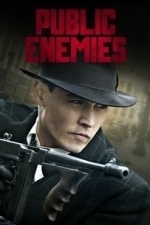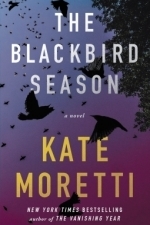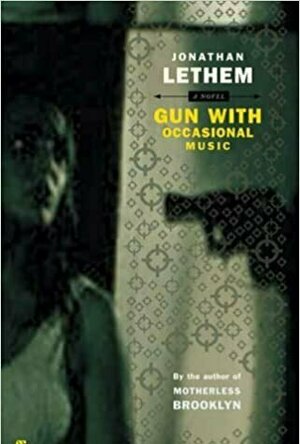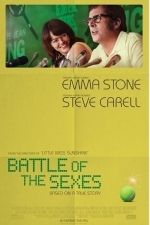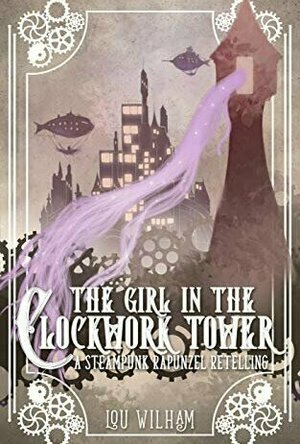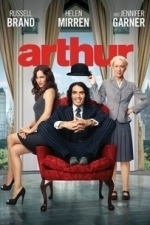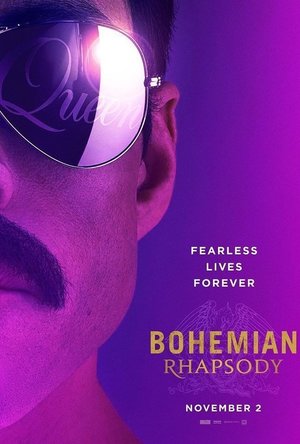Search
Search results
Chris Sawin (602 KP) rated Public Enemies (2009) in Movies
Jun 22, 2019
The year is 1933 and bank robberies are at an all time high. John Dillinger, Baby Face Nelson, and Pretty Boy Floyd are at the top of their game. In the public eye, robbers are looked at as heroes instead of criminals. Dillinger enjoys the fruit of his labor to the fullest until the day Melvin Purvis is put in charge of the FBI division down in Chicago. Word traveled fast of how one of FBI's top agents (Purvis) took down Pretty Boy Floyd and hopes are high that he can help in the newly announced "war on crime." Once Purvis arrived in Chicago, the crime wave of the 30's that was on a steady uprise took a drastic decline. Bank robberies were never the same as Dillinger's friends began dropping like flies. As Dillinger's motto of not thinking about tomorrow since he's too busy enjoying today comes back to haunt him, he soon realizes that he can only hide for so long and that the feds will catch up with him sooner or later.
The most noticeable thing about the film is its cinematography. Michael Mann has used the same method of shooting Public Enemies with HD digital cameras like he did with Collateral. This could be a hassle to some viewers as the picture isn't as shaky as it was in something like Cloverfield, but isn't as crystal clear and steady as you may have found in some of Mann's earlier work like Heat or most other films, for that matter. Perspective plays a huge role in this film. Certain lighting seems to come off better being shot in HD digital and it certainly shows, but the imperfections seem to give the film more character. Some people might throw the word, "edgy," around, but we'll settle on saying this style of filming feels like a more realistic approach. It makes the audience feel like they're actually amongst these gangsters during their heyday.
It almost felt like Christian Bale didn't really want to be there. Between this and Terminator: Salvation, he's really lacking the charisma and talent he's shown in films like The Prestige and The Machinist or even American Psycho. Maybe he's just hit his peak and has nothing else up his sleeve to wow audiences. Bale has hit an eye-catching slump, which is hard to say since this is coming from a long time fan. As long as he continues to be cast in big budget films though and those films wind up doing extremely well at the box office, then not many people are going to notice a difference in the actor's lackluster performance.
Johnny Depp, on the other hand, stole every scene he was in. His cockiness and confidence in his abilities in what he does just gave life to Dillinger that makes you generally like him. You want to see him escape as soon as he gets caught, pull off that next big robbery, and succeed at everything he does so he can run off with Billie Frechette (Marion Cotillard) and live happily ever after. His dialogue is also generally pretty incredible. In the scene where he's confronting Agent Purvis from behind bars, Dillinger is asking Purvis about what it was like to kill a man. How their eyes looked and how you can literally watch a man just drift away by staring into their eyes while they're dying. That that whole experience could keep a man up at night. Purvis asks Dillinger what keeps him up at night. Dillinger, who always seemed to be chewing gum, replies, "Coffee." Dillinger just felt like one of Depp's better acting roles, as of late. He showed more emotion than we're generally used to seeing from him and it was just an incredibly strong performance from the Oscar nominee.
The film has a lot of great dialogue, intriguing character interaction, and it's interesting watching the story unfold of how the crime wave of the 30s may have come to an end, but what really makes the film worth seeing is the shootouts. Any scene that begins with somebody holding a gun is worth getting excited over. There's a scene in the woods in the latter half of the film that is worth the price of admission alone. It takes place at night and everything is littered with darkness until the tommy guns make an appearance. The way the guns light up everything else around the characters firing them was a nice touch. Small explosions erupting from a chamber every time somebody pulled the trigger. This is some of the best gunfire to ever be filmed.
When it comes to Public Enemies, it is one of the best films of the year which is mentioned in at least one of the TV spots. Anyone who was a fan of Michael Mann's previous films (or gangster films, in general) will more than likely walk away from this film satisfied. Johnny Depp is still at the top of his game while Christian Bale seems to be winding down. Public Enemies is a film worthy of the summer blockbuster season which will satisfy the appetite of any fan of crime films.
The most noticeable thing about the film is its cinematography. Michael Mann has used the same method of shooting Public Enemies with HD digital cameras like he did with Collateral. This could be a hassle to some viewers as the picture isn't as shaky as it was in something like Cloverfield, but isn't as crystal clear and steady as you may have found in some of Mann's earlier work like Heat or most other films, for that matter. Perspective plays a huge role in this film. Certain lighting seems to come off better being shot in HD digital and it certainly shows, but the imperfections seem to give the film more character. Some people might throw the word, "edgy," around, but we'll settle on saying this style of filming feels like a more realistic approach. It makes the audience feel like they're actually amongst these gangsters during their heyday.
It almost felt like Christian Bale didn't really want to be there. Between this and Terminator: Salvation, he's really lacking the charisma and talent he's shown in films like The Prestige and The Machinist or even American Psycho. Maybe he's just hit his peak and has nothing else up his sleeve to wow audiences. Bale has hit an eye-catching slump, which is hard to say since this is coming from a long time fan. As long as he continues to be cast in big budget films though and those films wind up doing extremely well at the box office, then not many people are going to notice a difference in the actor's lackluster performance.
Johnny Depp, on the other hand, stole every scene he was in. His cockiness and confidence in his abilities in what he does just gave life to Dillinger that makes you generally like him. You want to see him escape as soon as he gets caught, pull off that next big robbery, and succeed at everything he does so he can run off with Billie Frechette (Marion Cotillard) and live happily ever after. His dialogue is also generally pretty incredible. In the scene where he's confronting Agent Purvis from behind bars, Dillinger is asking Purvis about what it was like to kill a man. How their eyes looked and how you can literally watch a man just drift away by staring into their eyes while they're dying. That that whole experience could keep a man up at night. Purvis asks Dillinger what keeps him up at night. Dillinger, who always seemed to be chewing gum, replies, "Coffee." Dillinger just felt like one of Depp's better acting roles, as of late. He showed more emotion than we're generally used to seeing from him and it was just an incredibly strong performance from the Oscar nominee.
The film has a lot of great dialogue, intriguing character interaction, and it's interesting watching the story unfold of how the crime wave of the 30s may have come to an end, but what really makes the film worth seeing is the shootouts. Any scene that begins with somebody holding a gun is worth getting excited over. There's a scene in the woods in the latter half of the film that is worth the price of admission alone. It takes place at night and everything is littered with darkness until the tommy guns make an appearance. The way the guns light up everything else around the characters firing them was a nice touch. Small explosions erupting from a chamber every time somebody pulled the trigger. This is some of the best gunfire to ever be filmed.
When it comes to Public Enemies, it is one of the best films of the year which is mentioned in at least one of the TV spots. Anyone who was a fan of Michael Mann's previous films (or gangster films, in general) will more than likely walk away from this film satisfied. Johnny Depp is still at the top of his game while Christian Bale seems to be winding down. Public Enemies is a film worthy of the summer blockbuster season which will satisfy the appetite of any fan of crime films.
Kristy H (1252 KP) rated The Blackbird Season in Books
Feb 13, 2018
It's just another day in Mount Oanoke, Pennsylvania when the birds start to fall. Hundreds of dead starlings, dropping from the sky during a baseball game. It seems like the birds started it all, but really the secrets and lies began much earlier. Nate Winters, high school teacher and baseball coach, is beloved in the town. That is, until a reporter, in town to cover the birds, catches Nate hugging a student at a local motel. Suddenly, the birds are forgotten, and the story becomes much juicier: Nate; his student, Lucia; and their supposed affair. Lucia fuels the fire by affirming the affair and suddenly Nate and his wife, Alecia, are swept up in the story. The only who believes in Nate's innocence, even a sliver, is his friend and co-worker, Bridget. As Lucia's creative writing teacher, she has unique insight into the girl's mind. But when Lucia suddenly goes missing--with Nate as the prime suspect in her disappearance--not even Bridget may be able to save Nate. But is there more to Lucia's disappearance than an affair with her teacher?
<i>Wow, I was really impressed by this novel. It's a complicated novel that is just as much a character-driven study as it is a mystery.</i> It's incredibly well-written, and Moretti expertly embodies the voice of each of her characters, from beleaguered Alecia, who is worn down from mothering her autistic son, Gabe; to the cast of teenager characters; to Bridget, who lost her husband to cancer a year ago. It's <i>so well-done</i> that often with each chapter (which skip from various points of view -- Bridget, Kate, Lucia, Nate, etc.), I found my myself veering between whom I preferred or believed, constantly second-guessing my allegiances or what happened. This is very rare for me: typically I find my "person" in a novel and stick with them, no matter what.
But here, I was confused, wondering. Was Nate really a cad, who cheated on his wife every second he got, or was he the sweet, affable teacher and baseball coach that the whole town admired and adored? And Alecia--was she more than just a weary mom, broken down by years of staying at home with her autistic son, Gabe, unable to give to anyone beyond him? Did she push Nate away, into the arms of others? Or was the truth more complicated that all of this? I have to hand it to Moretti--she was excellent at creating confusion and doubt. In addition to different perspectives, the novel shifts in time (before the birds fell, after the birds fell, before Lucia disappeared, etc.). It's a little tough to keep track of, but it also keeps you on your toes and always wondering, as you piece various parts of the puzzle together.
For me--even more than the mystery of what exactly happened with Lucia--<i>the strength of this novel was the writing and the characters.</i> I felt for them, even when I was frustrated with them. Moretti captures the angst and meanness of high school extremely well, portraying the cliques of a small town quite superbly. (I was reminded of <a href="https://www.goodreads.com/review/show/2115987339?book_show_action=false&from_review_page=1">WHEN WE WERE WORTHY</a>, which I just finished.) I loved the juxtaposition of this being a small town, so the idea is that everyone knows everyone and everything, and yet there are so many secrets, so much unknown. Being a witness to Alecia and Nate's marriage is amazing-- you see firsthand how the events affect them and how they've reached this point. <i>It's an incredibly realistic portrayal of marriage and of motherhood.</i>
As you probably tell, I just really liked this novel. It's very well-written, with quite compelling characters. I worked out some of the plot, but it didn't stop me from reading at all. I think some of the emphasis on character development slows the story at places, but not in any detrimental way. This one will make you think, as well as intrigue you with what happened to Lucia. Quite worth the read. 4+ stars.
I received a copy of this novel from the publisher and Netgalley (thank you!) in return for an unbiased review; it is available everywhere as of 09/26/2017.
<center><a href="http://justacatandabookatherside.blogspot.com/">Blog</a>; ~ <a href="https://twitter.com/mwcmoto">Twitter</a>; ~ <a href="https://www.facebook.com/justacatandabook/">Facebook</a>; ~ <a href="https://plus.google.com/u/0/+KristyHamiltonbooks">Google+</a>; ~ <a href="https://www.instagram.com/justacatandabook/">Instagram</a>; </center>
<i>Wow, I was really impressed by this novel. It's a complicated novel that is just as much a character-driven study as it is a mystery.</i> It's incredibly well-written, and Moretti expertly embodies the voice of each of her characters, from beleaguered Alecia, who is worn down from mothering her autistic son, Gabe; to the cast of teenager characters; to Bridget, who lost her husband to cancer a year ago. It's <i>so well-done</i> that often with each chapter (which skip from various points of view -- Bridget, Kate, Lucia, Nate, etc.), I found my myself veering between whom I preferred or believed, constantly second-guessing my allegiances or what happened. This is very rare for me: typically I find my "person" in a novel and stick with them, no matter what.
But here, I was confused, wondering. Was Nate really a cad, who cheated on his wife every second he got, or was he the sweet, affable teacher and baseball coach that the whole town admired and adored? And Alecia--was she more than just a weary mom, broken down by years of staying at home with her autistic son, Gabe, unable to give to anyone beyond him? Did she push Nate away, into the arms of others? Or was the truth more complicated that all of this? I have to hand it to Moretti--she was excellent at creating confusion and doubt. In addition to different perspectives, the novel shifts in time (before the birds fell, after the birds fell, before Lucia disappeared, etc.). It's a little tough to keep track of, but it also keeps you on your toes and always wondering, as you piece various parts of the puzzle together.
For me--even more than the mystery of what exactly happened with Lucia--<i>the strength of this novel was the writing and the characters.</i> I felt for them, even when I was frustrated with them. Moretti captures the angst and meanness of high school extremely well, portraying the cliques of a small town quite superbly. (I was reminded of <a href="https://www.goodreads.com/review/show/2115987339?book_show_action=false&from_review_page=1">WHEN WE WERE WORTHY</a>, which I just finished.) I loved the juxtaposition of this being a small town, so the idea is that everyone knows everyone and everything, and yet there are so many secrets, so much unknown. Being a witness to Alecia and Nate's marriage is amazing-- you see firsthand how the events affect them and how they've reached this point. <i>It's an incredibly realistic portrayal of marriage and of motherhood.</i>
As you probably tell, I just really liked this novel. It's very well-written, with quite compelling characters. I worked out some of the plot, but it didn't stop me from reading at all. I think some of the emphasis on character development slows the story at places, but not in any detrimental way. This one will make you think, as well as intrigue you with what happened to Lucia. Quite worth the read. 4+ stars.
I received a copy of this novel from the publisher and Netgalley (thank you!) in return for an unbiased review; it is available everywhere as of 09/26/2017.
<center><a href="http://justacatandabookatherside.blogspot.com/">Blog</a>; ~ <a href="https://twitter.com/mwcmoto">Twitter</a>; ~ <a href="https://www.facebook.com/justacatandabook/">Facebook</a>; ~ <a href="https://plus.google.com/u/0/+KristyHamiltonbooks">Google+</a>; ~ <a href="https://www.instagram.com/justacatandabook/">Instagram</a>; </center>
Paul Kellett (118 KP) rated Gloom of Kilforth: A Fantasy Quest Game in Tabletop Games
May 1, 2019
Over 250 unique pieces of high quality artwork (3 more)
Solo play using one character
Massive replayability
An evolving story that's different every time
Can take 4-5 hours with 4 players (1 more)
Can be brutally hard if the dice roll bad
An Epic Narrative Adventure Game for 1 to 4 heroes
Gloom of Kilforth is an epic narrative adventure where you try to complete your saga and defeat the ancient evil bringing the land into gloom.
You start by choosing a character, class and a saga to tell. Your character and class give you your starting stats (combat, knowledge, sneak and influence) while the sagas are 4 chapters long and each chapter requires 2 (or 3 if only playing 1-2 players) keywords to complete. Completing a chapter levels up your character giving you more health and a new skill.
Keywords are found on the cards you encounter as you search the map and are colour coded to give you a hint to where they are most likely to be found.
The map is a 5x5 grid of cards with Sprawl City in the centre and a mix of Forests, Mountains, Plains and Badlands arranged randomly around it.
Every time you enter an empty location, you draw a card from the relevant terrain deck and interact with it.
Encounters are won by rolling a number of d6 dice equal to your skill in the stat list d on the encounter. Success is on a 5 or 6 so playing to your character's strengths is paramount.
Each player starts with 4 health and at the start of each round, you gain action points equal to your current health which makes strategy and stealth the key to early success.
It also means that the game starts slowly but starts to snowball as you complete the chapters of your saga and level up.
At the end of each round, you make camp and draw a night card which causes a location to fall into gloom and possibly trigger an event. A character ending the day on a gloom location will suffer 1 health point loss.
This is the game timer, so you have 25 days to complete your saga, gain more skills and equipment and confront the big bad.
Despite the random encounter draws and the size of each terrain deck (30+ cards each), every card has been carefully designed to fit into the game and let you narrate a unique story as you play.
If you want a unique narrative adventure game with a solid depth of strategy, look no further.
You start by choosing a character, class and a saga to tell. Your character and class give you your starting stats (combat, knowledge, sneak and influence) while the sagas are 4 chapters long and each chapter requires 2 (or 3 if only playing 1-2 players) keywords to complete. Completing a chapter levels up your character giving you more health and a new skill.
Keywords are found on the cards you encounter as you search the map and are colour coded to give you a hint to where they are most likely to be found.
The map is a 5x5 grid of cards with Sprawl City in the centre and a mix of Forests, Mountains, Plains and Badlands arranged randomly around it.
Every time you enter an empty location, you draw a card from the relevant terrain deck and interact with it.
Encounters are won by rolling a number of d6 dice equal to your skill in the stat list d on the encounter. Success is on a 5 or 6 so playing to your character's strengths is paramount.
Each player starts with 4 health and at the start of each round, you gain action points equal to your current health which makes strategy and stealth the key to early success.
It also means that the game starts slowly but starts to snowball as you complete the chapters of your saga and level up.
At the end of each round, you make camp and draw a night card which causes a location to fall into gloom and possibly trigger an event. A character ending the day on a gloom location will suffer 1 health point loss.
This is the game timer, so you have 25 days to complete your saga, gain more skills and equipment and confront the big bad.
Despite the random encounter draws and the size of each terrain deck (30+ cards each), every card has been carefully designed to fit into the game and let you narrate a unique story as you play.
If you want a unique narrative adventure game with a solid depth of strategy, look no further.
Cori June (3033 KP) rated Gun, With Occasional Music in Books
Nov 23, 2021
Banter (1 more)
Good premise
Easily distracted while reading (2 more)
Poor execution of idea
Not good with explanations
I went into this book with low expectations. I mean there's a kangaroo with a gun. How serious can you take it? But suprisingly, I wouldn't say it qualified as absurdist noir/sci-fi.
The noir part is ok, pretty straightforward; however the point is to try and solve it along with the detective, or in this case private inquisitor, but the character made leaps and bounds with his puzzling and I was ".... how did you figure that?" Or I was more intrigued by the babyheads (which got a passing explanation that was blah and not enough) or the fact that the government encouraged the use of addictive drugs like forgetol or avoidtol (yeah super creative names but it got the point across) or why it was considered rude to ask questions or what is up with the Karma card? Most of which you get 0 answers.
The sci-fi aspect is surface level with the evolution of animals and the accelerated intelligence of babies/child. Freezing prisoners instead if regular jail. It was meh with sparatic points of interesting.
The dystopian world was well thought out but he did spend way too much waxing poetic on sunsets and sunrises. Don't get me wrong I love sunsets and sunrises but when I tried to see if there would be important information dropped at these points I got nothing.
The banter between characters was pretty good. Not the best bit it was good fir a small chuckle or appreciation.
The main character is not an likeable one however I found myself rooting for him. And I was repulsed by him and not just because of how he treats women. He even admits it is wrong. He's a very angry main character.
There is a take on body dysphoria, although as this book came out in the 90s I don't know if that was intentional or not.
Not having body dysphoria, but understanding how you can be uncomfortable in your own skin. I wonder if it's a semi accurate description?????
I almost rated it a five but I am still confused and am going "WTF did I just read?" So I thought a lot and was also way too easily distracted by other things (like tiktok or tv or my own thoughts). I should have been able to read this book in a day slow pacing or not and kept getting bored with it. I'll probably unhaul it at a used bookstore where someone can appreciate it more than I.
The noir part is ok, pretty straightforward; however the point is to try and solve it along with the detective, or in this case private inquisitor, but the character made leaps and bounds with his puzzling and I was ".... how did you figure that?" Or I was more intrigued by the babyheads (which got a passing explanation that was blah and not enough) or the fact that the government encouraged the use of addictive drugs like forgetol or avoidtol (yeah super creative names but it got the point across) or why it was considered rude to ask questions or what is up with the Karma card? Most of which you get 0 answers.
The sci-fi aspect is surface level with the evolution of animals and the accelerated intelligence of babies/child. Freezing prisoners instead if regular jail. It was meh with sparatic points of interesting.
The dystopian world was well thought out but he did spend way too much waxing poetic on sunsets and sunrises. Don't get me wrong I love sunsets and sunrises but when I tried to see if there would be important information dropped at these points I got nothing.
The banter between characters was pretty good. Not the best bit it was good fir a small chuckle or appreciation.
The main character is not an likeable one however I found myself rooting for him. And I was repulsed by him and not just because of how he treats women. He even admits it is wrong. He's a very angry main character.
There is a take on body dysphoria, although as this book came out in the 90s I don't know if that was intentional or not.
Not having body dysphoria, but understanding how you can be uncomfortable in your own skin. I wonder if it's a semi accurate description?????
I almost rated it a five but I am still confused and am going "WTF did I just read?" So I thought a lot and was also way too easily distracted by other things (like tiktok or tv or my own thoughts). I should have been able to read this book in a day slow pacing or not and kept getting bored with it. I'll probably unhaul it at a used bookstore where someone can appreciate it more than I.
Bob Mann (459 KP) rated Battle of the Sexes (2016) in Movies
Sep 29, 2021
Tennis and sex, but without the grunting.
Here’s a good test of someone’s age…. ask the question “Billie-Jean?”. Millennials will probably come back with “Huh?”; those in their 30’s or 40’s might come back with “Michael Jackson!”; those older than that will probably reply “King!”.
“Battle of the Sexes” (which I just managed to catch before it left cinemas) tells the true-life story of US tennis star Billie-Jean King (Emma Stone, “La La Land“). The year is 1973 and Billie-Jean is riding high as the Number 1 female tennis player. She is a feminist; she is married (to hunk Larry – no not that one – King played by Austin Stowell (“Whiplash“, “Bridge of Spies“)); …. and she is also attracted to women, not something she has yet acted on. That all changes when her path crosses with LA-hairdresser Marilyn (Andrea Riseborough, “Birdman“, “Oblivion”).
But this is a side story: the main event is a bet made by aging ex-star Bobby Riggs (Steve Carell, “Foxcatcher“); that – even at his age – as a man he could beat the leading female tennis player of the day.
The film is gloriously retro, starting with the old-school 20th Century Fox production logo. And it contains breathtakingly sexist dialogue by writer Simon Beaufoy (“Everest“, “The Full Monty”). Surely men couldn’t have been so crass and outrageous in the 70’s? Sorry ladies, but the answer is yes, and the film is testament to how far women’s rights have come in 50 years.
This is a tour de force in acting from both Emma Stone and Steve Carell, particularly the latter: a scene where Carell tries to re-engage with his estranged wife (Elisabeth Shue, “Leaving Las Vegas”) is both nuanced and heart-breaking. Stone’s performance is also praiseworthy, although it feels slightly less so as it is an impersonation of a (relatively) well-known figure: this is extremely well-studied though, right down to her strutting walk around the court which I had both forgotten and was immediately again reminded of.
One of my favourite movie awards are the Screen Actor’s Guild (SAG) “cast” awards that celebrate ensemble performances, and here is a film that should have been nominated (it unfortunately wasn’t). Andrea Riseborough; Natalie Morales (as fellow tennis player Rosie Casals); comedian Sarah Silverman (“A Million Ways to Die in the West“), almost unrecognisable as the brash publicist Gladys Heldman; Bill Pullman as LTA head Jack Kramer; the great Alan Cumming (“The Good Wife”) as the team’s flamboyant, gay, costume designer; Lewis Pullman as Riggs’s son Larry; Jessica McNamee (magnetic eyes!) as King’s Australian tennis nemesis Margaret Court. All bounce off the leads, and each other, just beautifully.
Cinematography by Linus Sandgren (“La La Land“) and editing by Pamela Martin (“Little Miss Sunshine”) unite to deliver one of the most sexually charged haircuts you are ever likely to see on the screen. For those put off by this aspect of the storyline, the “girl-on-girl action” is pretty tastefully done and not overly graphic: it’s mostly “first-base” stuff rather than “third-base”!
“What a waste of a lovely night”. Marilyn (Andrea Riseborough) and Billie-Jean (Emma Stone) get serious.
Directed with panache by the co-directors of the 2006 smash “Little Miss Sunshine” – Jonathan Dayton and Valerie Faris – all in all it’s a delight, especially for older audiences who will get a blast of nostalgia from days when sports were still played at a slightly more leisurely pace… and definitely without the grunting.
“Battle of the Sexes” (which I just managed to catch before it left cinemas) tells the true-life story of US tennis star Billie-Jean King (Emma Stone, “La La Land“). The year is 1973 and Billie-Jean is riding high as the Number 1 female tennis player. She is a feminist; she is married (to hunk Larry – no not that one – King played by Austin Stowell (“Whiplash“, “Bridge of Spies“)); …. and she is also attracted to women, not something she has yet acted on. That all changes when her path crosses with LA-hairdresser Marilyn (Andrea Riseborough, “Birdman“, “Oblivion”).
But this is a side story: the main event is a bet made by aging ex-star Bobby Riggs (Steve Carell, “Foxcatcher“); that – even at his age – as a man he could beat the leading female tennis player of the day.
The film is gloriously retro, starting with the old-school 20th Century Fox production logo. And it contains breathtakingly sexist dialogue by writer Simon Beaufoy (“Everest“, “The Full Monty”). Surely men couldn’t have been so crass and outrageous in the 70’s? Sorry ladies, but the answer is yes, and the film is testament to how far women’s rights have come in 50 years.
This is a tour de force in acting from both Emma Stone and Steve Carell, particularly the latter: a scene where Carell tries to re-engage with his estranged wife (Elisabeth Shue, “Leaving Las Vegas”) is both nuanced and heart-breaking. Stone’s performance is also praiseworthy, although it feels slightly less so as it is an impersonation of a (relatively) well-known figure: this is extremely well-studied though, right down to her strutting walk around the court which I had both forgotten and was immediately again reminded of.
One of my favourite movie awards are the Screen Actor’s Guild (SAG) “cast” awards that celebrate ensemble performances, and here is a film that should have been nominated (it unfortunately wasn’t). Andrea Riseborough; Natalie Morales (as fellow tennis player Rosie Casals); comedian Sarah Silverman (“A Million Ways to Die in the West“), almost unrecognisable as the brash publicist Gladys Heldman; Bill Pullman as LTA head Jack Kramer; the great Alan Cumming (“The Good Wife”) as the team’s flamboyant, gay, costume designer; Lewis Pullman as Riggs’s son Larry; Jessica McNamee (magnetic eyes!) as King’s Australian tennis nemesis Margaret Court. All bounce off the leads, and each other, just beautifully.
Cinematography by Linus Sandgren (“La La Land“) and editing by Pamela Martin (“Little Miss Sunshine”) unite to deliver one of the most sexually charged haircuts you are ever likely to see on the screen. For those put off by this aspect of the storyline, the “girl-on-girl action” is pretty tastefully done and not overly graphic: it’s mostly “first-base” stuff rather than “third-base”!
“What a waste of a lovely night”. Marilyn (Andrea Riseborough) and Billie-Jean (Emma Stone) get serious.
Directed with panache by the co-directors of the 2006 smash “Little Miss Sunshine” – Jonathan Dayton and Valerie Faris – all in all it’s a delight, especially for older audiences who will get a blast of nostalgia from days when sports were still played at a slightly more leisurely pace… and definitely without the grunting.
Lottie disney bookworm (1056 KP) rated The Girl In The Clockwork Tower in Books
Aug 30, 2021
Steampunk Rapunzel-inspired tale? Check.
Dashing captain of an airship? Check.
Magic? Check.
Weird obsession with pineapples? Check!
The Girl in the Clockwork Tower is a steampunk Rapunzel-inspired tale full of adventure and magic and great, well-developed characters.
Persinette was brought to MOTHER headquarters at the age of 8 and has since been used as a seer, tracking the ‘Enchanted’ so that they can be captured by MOTHER’s agents and placed in concentration camps. 16 years later, Persinette, or Persi, doesn’t take the entrapment of her own kind lightly but is under constant threat from her controlling agent Gothel who makes it clear that once Persi is no longer useful to MOTHER, she will be disposed of.
Luckily for Persi, the Enchanted are not completely defenceless and the ‘Uprising’ have also noticed her talents. Captain Manu Kelii is tasked with recruiting Persi to their cause but can the charming airship captain protect the Seer from the formidable MOTHER?
Lou Wilham’s characters are so well developed you will feel as if you have known them forever. Persinette begins her adventure as a timid, downtrodden, lavender haired girl: used as an asset for as long as she can remember. However, by the closing pages, Persi is a survivor, wielding her new-found magic and is unwilling to be an “asset” for anyone but herself.
Despite Persi’s evolution from broken to badass, Captain Manu Kelii steals the show. Manu is a puppy dog, so eager to please and very confident in himself. When he finally receives a mission from the leader of the Uprising he is like a kid at Christmas and his bizarre obsession with pineapple provides both humour and an almost arrogant air about him. However, Manu’s clear adoration and care for Persi really cause him to grow as a character: this is potentially the first time Manu has worried for someone other than himself.
I would have liked a little more backstory from Manu, we know how he came to be on the ‘Duchess’ and we know him now but what happened in the meantime? It would be nice to have a little more insight into our pirate captain’s previous adventures.
Some reviewers have said this book is not a true Rapunzel retelling and I can see what they mean to a certain extent. I can certainly appreciate that the towns of Pascal and Maximus, the organisation Mother and agent Gothel do feel quite forced. However, Persinette was the “maiden in the tower” of literature before Grimm’s Rapunzel grew her first curl and when you think that Wilham’s Persi is imprisoned in a tower, desperate to explore the outside world but, most importantly, to discover who she truly is, you start to realise that the stories aren’t a million miles apart after all.
That being said, the cute Disney-esque details weren’t really needed, they certainly weren’t what made this story great: The Girl in the Clockwork Tower would have easily stood its own ground without any affinity to Rapunzel being made.
It shouldn’t need adding but sadly the lack of diversity in other novels means that readers find it refreshing and reassuring when LGBTQIA characters are included and Lou Wilham does not disappoint. Eddi, the leader of the uprising uses gender neutral pronouns and Benard and Owen are the cutest “gay dads” to Manu.
I really appreciated how these characters’ genders or sexuality were not under a spotlight: pronouns were used and relationships were explained, just as they were with Manu and Persi and that is just how it should be.
The Girl in the Clockwork tower is a gritty fairytale; complete with love, magic, villains, airships, concentration camps and a fair amount of alcohol on Manu’s part! Persi’s adventure sees her discovering her strength, her magic and maybe even finding love: this is one damsel who doesn’t need a man to save the day!
Thank you to Booksirens. I received an advance review copy for free, and I am leaving this review voluntarily.
Dashing captain of an airship? Check.
Magic? Check.
Weird obsession with pineapples? Check!
The Girl in the Clockwork Tower is a steampunk Rapunzel-inspired tale full of adventure and magic and great, well-developed characters.
Persinette was brought to MOTHER headquarters at the age of 8 and has since been used as a seer, tracking the ‘Enchanted’ so that they can be captured by MOTHER’s agents and placed in concentration camps. 16 years later, Persinette, or Persi, doesn’t take the entrapment of her own kind lightly but is under constant threat from her controlling agent Gothel who makes it clear that once Persi is no longer useful to MOTHER, she will be disposed of.
Luckily for Persi, the Enchanted are not completely defenceless and the ‘Uprising’ have also noticed her talents. Captain Manu Kelii is tasked with recruiting Persi to their cause but can the charming airship captain protect the Seer from the formidable MOTHER?
Lou Wilham’s characters are so well developed you will feel as if you have known them forever. Persinette begins her adventure as a timid, downtrodden, lavender haired girl: used as an asset for as long as she can remember. However, by the closing pages, Persi is a survivor, wielding her new-found magic and is unwilling to be an “asset” for anyone but herself.
Despite Persi’s evolution from broken to badass, Captain Manu Kelii steals the show. Manu is a puppy dog, so eager to please and very confident in himself. When he finally receives a mission from the leader of the Uprising he is like a kid at Christmas and his bizarre obsession with pineapple provides both humour and an almost arrogant air about him. However, Manu’s clear adoration and care for Persi really cause him to grow as a character: this is potentially the first time Manu has worried for someone other than himself.
I would have liked a little more backstory from Manu, we know how he came to be on the ‘Duchess’ and we know him now but what happened in the meantime? It would be nice to have a little more insight into our pirate captain’s previous adventures.
Some reviewers have said this book is not a true Rapunzel retelling and I can see what they mean to a certain extent. I can certainly appreciate that the towns of Pascal and Maximus, the organisation Mother and agent Gothel do feel quite forced. However, Persinette was the “maiden in the tower” of literature before Grimm’s Rapunzel grew her first curl and when you think that Wilham’s Persi is imprisoned in a tower, desperate to explore the outside world but, most importantly, to discover who she truly is, you start to realise that the stories aren’t a million miles apart after all.
That being said, the cute Disney-esque details weren’t really needed, they certainly weren’t what made this story great: The Girl in the Clockwork Tower would have easily stood its own ground without any affinity to Rapunzel being made.
It shouldn’t need adding but sadly the lack of diversity in other novels means that readers find it refreshing and reassuring when LGBTQIA characters are included and Lou Wilham does not disappoint. Eddi, the leader of the uprising uses gender neutral pronouns and Benard and Owen are the cutest “gay dads” to Manu.
I really appreciated how these characters’ genders or sexuality were not under a spotlight: pronouns were used and relationships were explained, just as they were with Manu and Persi and that is just how it should be.
The Girl in the Clockwork tower is a gritty fairytale; complete with love, magic, villains, airships, concentration camps and a fair amount of alcohol on Manu’s part! Persi’s adventure sees her discovering her strength, her magic and maybe even finding love: this is one damsel who doesn’t need a man to save the day!
Thank you to Booksirens. I received an advance review copy for free, and I am leaving this review voluntarily.
Gareth von Kallenbach (980 KP) rated Arthur (2011) in Movies
Aug 7, 2019
Arthur Bach is a spoiled, boyish, alcoholic, New York City playboy with amazing hair and heir to the family business and fortune. He and his faithful sidekick Bitterman travel far and wide to have fun and drink. Well, Arthur drinks, Bitterman drives. He is also very dependent on his nanny Hobson who has been with him since he was born and still takes care of him. One day his mother Vivienne decides she’s had it with his antics, embarrassing her and the family company, so she gives him an ultimatum: either he marries Susan Johnson or he will be cut-off and have to fend for himself on the mean streets of New York City.
Though he doesn’t love Susan, he eventually decides to go along with his mother’s wishes and propose to her. But during this time he also meets the enchanting Naomi, an unlicensed tour guide of Grand Central Terminal who has dreams of being a children’s author. As the wedding day draws nearer and nearer, Arthur and Naomi grow closer and closer. Then tragedy strikes. How this affects Arthur could change his entire life. Does he marry Susan and keep his wealth but gain the world’s scariest father-in-law? Does he choose the mean streets of New York City to be with Naomi? Or do he and Bitterman jump into the Batmobile and drive off into the sunset?
This remake of the 1981 movie Arthur honored the wonderful story that many of us know and love from the original film while still possessing its own unique flair. I believe Dudley Moore would have been very happy with Russell Brand’s excellent performance as Arthur Bach (if you disagree, hold a seance and prove me wrong). Helen Mirren does an amazing job as Hobson and she pretty much owns any scene she is in. Nick Nolte & Jennifer Garner were great as Burt (world’s scariest future father-in-law) and Susan Johnson (Arthur’s total-10-on-the-L.A.-scale) fiancee. Last but not least, I thoroughly enjoyed the performances of: Greta Gerwig as Naomi (Arthur’s love interest), Geraldine James as Vivienne Bach (Arthur’s Mom) and Luis Guzman as Bitterman his faithful sidekick and chauffeur (though I do wish Luis would have been given more screen time). The film definitely kept the audiences attention from start to finish but we were all laughing so much that I have to see it again to hear the jokes that I missed the first time.
If you were sober when you saw the original movie you probably remember the key parts of the story line but if not then this movie will seem like an entirely original movie to you.
Though he doesn’t love Susan, he eventually decides to go along with his mother’s wishes and propose to her. But during this time he also meets the enchanting Naomi, an unlicensed tour guide of Grand Central Terminal who has dreams of being a children’s author. As the wedding day draws nearer and nearer, Arthur and Naomi grow closer and closer. Then tragedy strikes. How this affects Arthur could change his entire life. Does he marry Susan and keep his wealth but gain the world’s scariest father-in-law? Does he choose the mean streets of New York City to be with Naomi? Or do he and Bitterman jump into the Batmobile and drive off into the sunset?
This remake of the 1981 movie Arthur honored the wonderful story that many of us know and love from the original film while still possessing its own unique flair. I believe Dudley Moore would have been very happy with Russell Brand’s excellent performance as Arthur Bach (if you disagree, hold a seance and prove me wrong). Helen Mirren does an amazing job as Hobson and she pretty much owns any scene she is in. Nick Nolte & Jennifer Garner were great as Burt (world’s scariest future father-in-law) and Susan Johnson (Arthur’s total-10-on-the-L.A.-scale) fiancee. Last but not least, I thoroughly enjoyed the performances of: Greta Gerwig as Naomi (Arthur’s love interest), Geraldine James as Vivienne Bach (Arthur’s Mom) and Luis Guzman as Bitterman his faithful sidekick and chauffeur (though I do wish Luis would have been given more screen time). The film definitely kept the audiences attention from start to finish but we were all laughing so much that I have to see it again to hear the jokes that I missed the first time.
If you were sober when you saw the original movie you probably remember the key parts of the story line but if not then this movie will seem like an entirely original movie to you.

Pocket God
Entertainment and Games
App
What kind of god would you be? Benevolent or vengeful? Play Pocket God and discover the answer...
Kirk Bage (1775 KP) rated Bohemian Rhapsody (2018) in Movies
Mar 3, 2020
In the search for a way to watch the 92nd Academy Awards live from Hollywood tonight I was led to a subscription for Now TV, which is basically the online platform for Sky Cinema. And there I found all the missing films I had yet to see from last year that aren’t available “free” on Amazon Prime or Netflix. I should really have worked it out before now that a free trial might be available, having assumed that a Sky subscription was beyond my means at the moment. Imagine my excitement to not only secure the Oscars but a 7 day pass to catch up on some big titles. It’s the small things in life…
Having made a 20 strong watch list, I wasted no time in heading straight for the Queen biopic, Bohemian Rhapsody, winner of 4 awards last February, including one for Rami Malek as Freddy Mercury that I applauded very loudly at the time, without having seen it, due to my love for him as Elliot Alderson in my favourite TV show of the last 5 years, the incredible and mindbendingly brilliant Mr. Robot.
My connection to Queen as a fan isn’t an especially strong one; I have always thought they were fine, and enjoyed their biggest hits as much as anyone. But it is the story, charisma and undeniable singing talent of Mercury that attracts me. From the opening scenes it is apparent that what we are going to get here is a fairly straightforward, by the numbers recounting of events, punctuated by some serious tunes and some glorious 70s fashions. Having read that this was the main criticism of it going in, it really didn’t bother me at all to find it wasn’t going to make bolder artistic and dramatic choices. It was very much about sitting back and enjoying the show!
In fact, there is something comforting and unchallenging about its format that I liked. The pattern of abc that is a) some background to Freddy’s life, b) a build up to how they came across their big hits, and c) a rendition of that hit, didn’t strike me as cheap, but rather unpretentious and to the point. The whole thing clipped along nicely with very little dead air; Malek is a joy to watch in every moment; the clothes and scenery of the 70s and later 80s is a treat; and the music stands for itself, with you often forgetting how good the tunes are until you hear them in this context.
Of course, at times it is almost laughable how well known facts and details are crow-barred into the narrative, with some of the darker elements glossed over, as if this were almost a Disney retelling. But, again, it doesn’t matter, because as an entertainment it is all so enjoyable. Not to say the dark side of the story isn’t touched upon, because it is to an extent, just that it is clear this is a celebration of a life and a talent, not an exposé. Which is fine. As with the superior Walk The Line, and the recently inferior Rocketman, we know a seedier story of Johnny Cash and Elton John exists, but we accept that revelling in the genius of the music is more fun than trawling through the trash.
Malek is a wonder to behold! It has to be said. Once you (and he) get used to the false teeth and bite down on the energy and drive of Mercury, it is impossible to take your eyes off him! He handles the dramatic moments and nuance of this fragile mind with ease, but it is the performances that stand out: his movement is so fluid and accurate that you forget at times you aren’t watching archive footage, which is some trick! Gwilym Lee and Ben Hardy as Brian May and Roger Taylor are also to be praised for this, despite having less to do. With Joseph Mazzello as John Deacon largely merging into the background inoffensively, much as his real life counterpart did.
There is some solid support too. Lucy Boynton is completely charming if largely uninteresting; Tom Hollander quietly steals several scenes as the lawyer who doesn’t just work for them but idolises them as much as any fan; and an unrecognisable Mike Myers is a lot of fun as the manager who missed out on the vision and lives to regret it. Honourable mention also to Allen Leech as the villain of the piece, who walks the tightrope of cartoonish nastiness with some skill, serving the story well in the latter half.
My favourites parts were, unsurprisingly, the genesis and evolution of the big tunes, which was invariably very satisfying. Love of My Life, We Will Rock You, We are the Champions and of course Bohemian Rhapsody are treated like holy texts, with fascinating detail and a reverence that never seems over-egged. Building to the climax of Live Aid; a twenty minute segment at the end of the film that brings a genuine lump to the throat. The magnitude of the event and its natural energy are so well realised, every minor foible of the film up to that point are forgiven, and you walk away from it feeling elated and glad that this moment exists in music history.
Artistically, it isn’t a movie to get too caried away about, but the art of creating a spectacle that pleases on a basic, uncomplicated level is. Director Bryan Singer knows a trick or two, and the trick here is what is left out. There just isn’t a moment to be bored, and I find myself wishing that films of this kind took a leaf out of that book more often. In conclusion, I think this movie will endure the test of time, which is a lot more than most biopic genre films can say. But who wants to live forever anyway?
Having made a 20 strong watch list, I wasted no time in heading straight for the Queen biopic, Bohemian Rhapsody, winner of 4 awards last February, including one for Rami Malek as Freddy Mercury that I applauded very loudly at the time, without having seen it, due to my love for him as Elliot Alderson in my favourite TV show of the last 5 years, the incredible and mindbendingly brilliant Mr. Robot.
My connection to Queen as a fan isn’t an especially strong one; I have always thought they were fine, and enjoyed their biggest hits as much as anyone. But it is the story, charisma and undeniable singing talent of Mercury that attracts me. From the opening scenes it is apparent that what we are going to get here is a fairly straightforward, by the numbers recounting of events, punctuated by some serious tunes and some glorious 70s fashions. Having read that this was the main criticism of it going in, it really didn’t bother me at all to find it wasn’t going to make bolder artistic and dramatic choices. It was very much about sitting back and enjoying the show!
In fact, there is something comforting and unchallenging about its format that I liked. The pattern of abc that is a) some background to Freddy’s life, b) a build up to how they came across their big hits, and c) a rendition of that hit, didn’t strike me as cheap, but rather unpretentious and to the point. The whole thing clipped along nicely with very little dead air; Malek is a joy to watch in every moment; the clothes and scenery of the 70s and later 80s is a treat; and the music stands for itself, with you often forgetting how good the tunes are until you hear them in this context.
Of course, at times it is almost laughable how well known facts and details are crow-barred into the narrative, with some of the darker elements glossed over, as if this were almost a Disney retelling. But, again, it doesn’t matter, because as an entertainment it is all so enjoyable. Not to say the dark side of the story isn’t touched upon, because it is to an extent, just that it is clear this is a celebration of a life and a talent, not an exposé. Which is fine. As with the superior Walk The Line, and the recently inferior Rocketman, we know a seedier story of Johnny Cash and Elton John exists, but we accept that revelling in the genius of the music is more fun than trawling through the trash.
Malek is a wonder to behold! It has to be said. Once you (and he) get used to the false teeth and bite down on the energy and drive of Mercury, it is impossible to take your eyes off him! He handles the dramatic moments and nuance of this fragile mind with ease, but it is the performances that stand out: his movement is so fluid and accurate that you forget at times you aren’t watching archive footage, which is some trick! Gwilym Lee and Ben Hardy as Brian May and Roger Taylor are also to be praised for this, despite having less to do. With Joseph Mazzello as John Deacon largely merging into the background inoffensively, much as his real life counterpart did.
There is some solid support too. Lucy Boynton is completely charming if largely uninteresting; Tom Hollander quietly steals several scenes as the lawyer who doesn’t just work for them but idolises them as much as any fan; and an unrecognisable Mike Myers is a lot of fun as the manager who missed out on the vision and lives to regret it. Honourable mention also to Allen Leech as the villain of the piece, who walks the tightrope of cartoonish nastiness with some skill, serving the story well in the latter half.
My favourites parts were, unsurprisingly, the genesis and evolution of the big tunes, which was invariably very satisfying. Love of My Life, We Will Rock You, We are the Champions and of course Bohemian Rhapsody are treated like holy texts, with fascinating detail and a reverence that never seems over-egged. Building to the climax of Live Aid; a twenty minute segment at the end of the film that brings a genuine lump to the throat. The magnitude of the event and its natural energy are so well realised, every minor foible of the film up to that point are forgiven, and you walk away from it feeling elated and glad that this moment exists in music history.
Artistically, it isn’t a movie to get too caried away about, but the art of creating a spectacle that pleases on a basic, uncomplicated level is. Director Bryan Singer knows a trick or two, and the trick here is what is left out. There just isn’t a moment to be bored, and I find myself wishing that films of this kind took a leaf out of that book more often. In conclusion, I think this movie will endure the test of time, which is a lot more than most biopic genre films can say. But who wants to live forever anyway?
